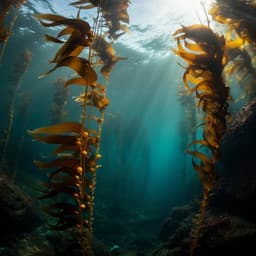
Environmental Studies and Forestry
Predation and spatial connectivity interact to shape ecosystem resilience to an ongoing regime shift
A. B. Olin, U. Bergström, et al.
This groundbreaking study by Agnes B. Olin and colleagues delves into how spatial connectivity and local environmental factors influence ecosystem resilience to regime shifts. Their research in the Baltic Sea reveals that habitat connectivity for predatory fish enhances resilience, especially under low top predator densities and warmer temperatures, crucially linking theoretical predictions with real-world observations.
~3 min • Beginner • English
Related Publications
Explore these studies to deepen your understanding of the subject.







